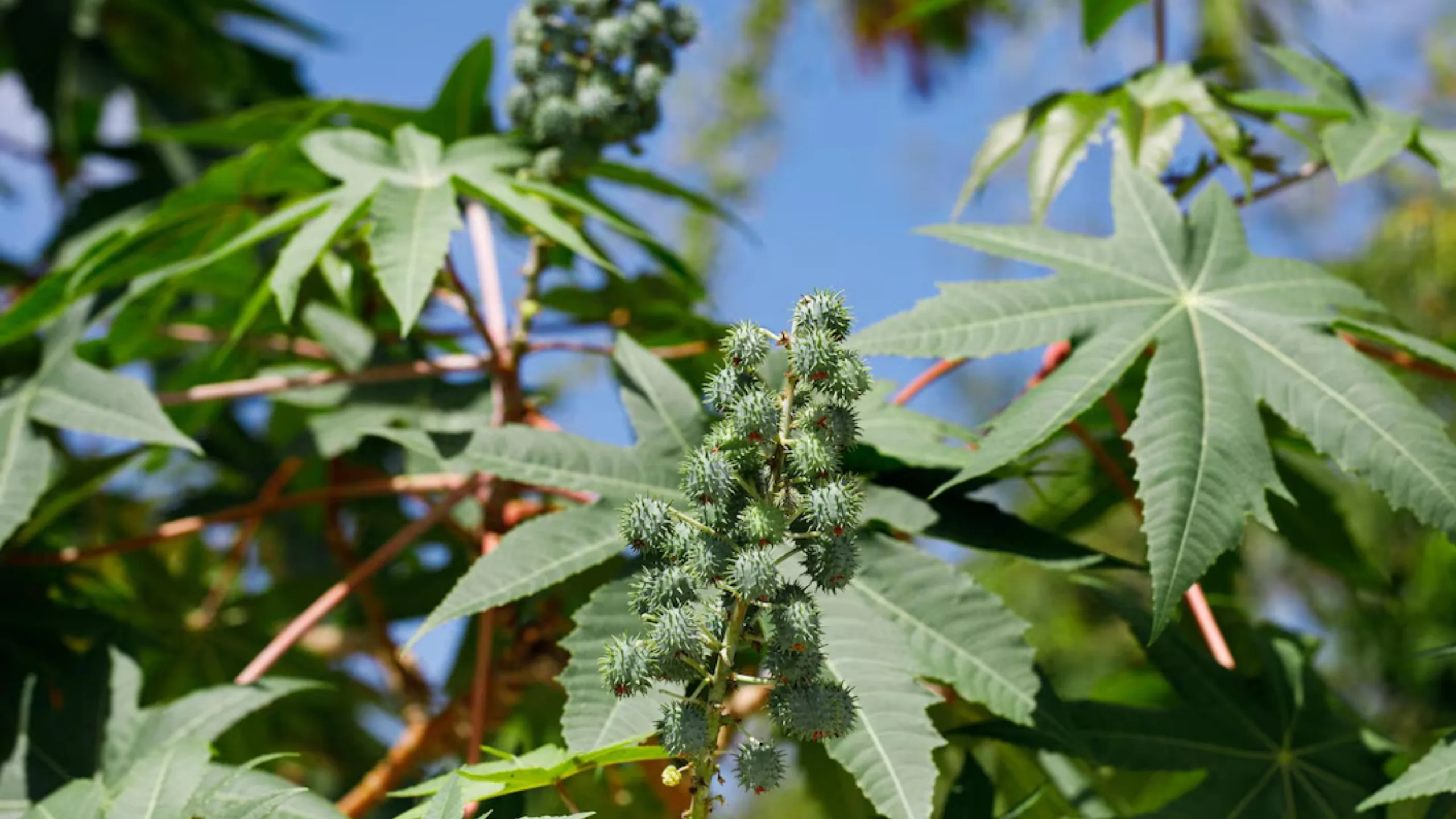
Eranda (Ricinus communis L.) is a fast-growing, perennial or annual shrub native to the tropical regions of Africa and India, now cultivated worldwide for its medicinal seeds and oil. It belongs to the Euphorbiaceae family and is widely known for its castor oil, which is used in pharmaceuticals, cosmetics, and traditional medicine systems like Ayurveda, Siddha, and Unani. The plant is known for its purgative, anti-inflammatory, analgesic, and laxative properties.
Scientific Classification
- Kingdom: Plantae
- Phylum: Angiosperms
- Class: Eudicots
- Order: Malpighiales
- Family: Euphorbiaceae
- Genus: Ricinus
- Species: Ricinus communis L.
Common Names
- English: Castor Plant
- Sanskrit: Eranda
- Hindi: Arand
- Tamil: Amanakku
- Telugu: Amudamu
- Bengali: Rer
- Gujarati: Andar
- Marathi: Erand
Traditional and Medicinal Uses
- Laxative and Purgative - Castor oil from Eranda seeds acts as a strong purgative, used for treating constipation and cleansing the bowels.
- Anti-inflammatory - The leaves and oil are applied externally for joint pain, arthritis, and inflammatory swellings.
- Pain Relief - Leaf poultice is traditionally used to relieve muscle pain and neuralgia.
- Respiratory Health - Used in cough and asthma, especially in Ayurveda, where root decoction is known to reduce Kapha.
- Gynecological Use - Used in inducing labor and treating postpartum disorders.
- Hepatoprotective and Antimicrobial - Traditional use includes managing liver disorders and bacterial infections.
Phytochemical Constituents
References
Ayurvedic Pharmacopoeia of India (API), Part I, Volume 3, Govt. of India, Ministry of AYUSH.
Indian Materia Medica by K.M. Nadkarni, Vol. 1, Popular Prakashan, Mumbai.
Chopra, R.N., Nayar, S.L., & Chopra, I.C. (1956). Glossary of Indian Medicinal Plants. CSIR, New Delhi.
Duke, J.A. (2002). Handbook of Medicinal Herbs. CRC Press.
Prasad, R., & Raju, B. (2009). "Phytopharmacology of Ricinus communis L. – A review." International Journal of Pharmaceutical Sciences Review and Research, 1(2), 1-6.
Singh, A., & Singh, D. (2010). "A review on traditional uses, phytochemistry, and pharmacological activities of Ricinus communis." Journal of Pharmacognosy and Phytotherapy, 2(5), 55-60.
European Pharmacopoeia, 10th Edition, Council of Europe.
Sharma, P.V. (2006). Dravyaguna Vijnana, Vol. II, Chaukhamba Bharati Academy, Varanasi.